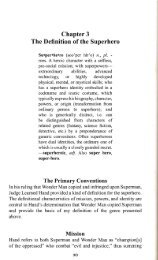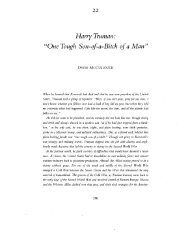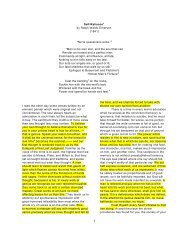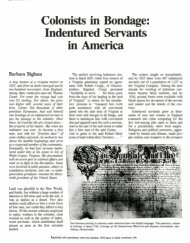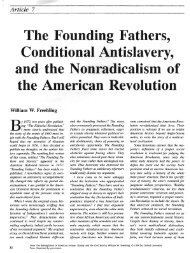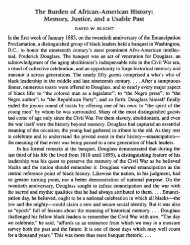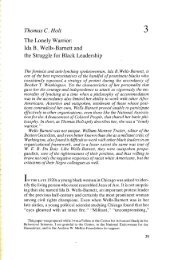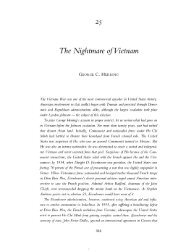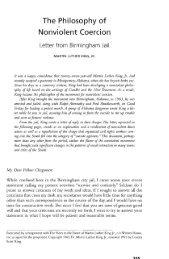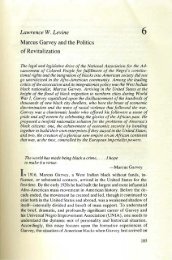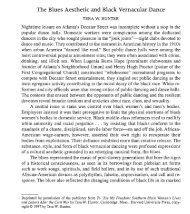Mary - Journeytohistory
Mary - Journeytohistory
Mary - Journeytohistory
Create successful ePaper yourself
Turn your PDF publications into a flip-book with our unique Google optimized e-Paper software.
Chapter 11Civil War227The opposition of the government early in the war to using black soldiersevoked unfavorable criticism from abolitionists. There was considerable agitationfor arming blacks. Garrison and Phillips believed that it was cruel to depriveblacks of the opportunity to fight for the freedom of their brothers andsisters. White Northerners who were not abolitionists objected to fighting forthe freedom of blacks when blacks themselves were not fighting. Many citizenshowever, including some soldiers, did not want blacks to wear the uniform ofthe Union, feeling that it should be reserved for those whose citizenship wasunquestioned. Lincoln feared that the border states would take exception to apolicy of arming blacks and that it would seriously alienate support in theNorth. He therefore gave no serious consideration to arming them until thespring of 1862, and then it was forced on him.As a result of considerable pressure from officers in the field, the actingsecretary of war authorized Gen. Thomas W. Sherman in October 1861 to "employfugitive slaves in such services as they may be fitted for ... with such organizationas you may deem most beneficial to the service; this, however, notbeing a general arming of them for military service." "Vhile Sherman did nottake advantage of this authorization to arm some slaves, his successor, DavidHunter, sent out a call in May 1862 for blacks to serve in the army. Within a fewmonths enough had responded for the First South Carolina Volunteer Regimentto be activated, but almost immediately Hunter was forced to disband thegroup, and the men were sent home unpaid and dissatisfied. In the autumn of1862, however, Lincoln permitted the enlistment of some blacks. General B. F.Butler mustered a whole regiment of free blacks in Louisiana, and Hunter'sSouth Carolina regiment was reorganized by General Saxton. In December,Gen. Augustus Chetlain assumed control of blacks volunteering in Tennessee,and thereafter the program was definitely considered a successful venture.Machinery for recruiting black soldiers in the South was set up in thespring of 1863 by Adj. Gen. Lorenzo Thomas, who was sent to the MississippiValley to put it into operation. A special bureau was established in his office forthe "conduct of all matters referring to the organization of Negro troops." Recruitingagents were selected and stations established in <strong>Mary</strong>land, Tennessee,Missouri, and at other strategic points. All able-bodied black men were eligiblefor military employment. Where loyal masters consented to the enlistment oftheir slaves, the masters were to receive $300 for each one. IfRecn,itmcill ofsufficient recruits were not obtained in an area \vithin thirtydays, slaves were taken without consent of loyal owners. Although two years had elapsed before the federal governmentadopted a clear-cut policy regarding black soldiers, it demonstrated that whenthe circumstances were favorable, it could pursue a policy vigorous enough tosatisfy even the most zealous abolitionists.These months of vacillation on the treatment of runaway slaves, the reliefof blacks, and their military service had a disquieting effect on their status duringthe Civil War. If the federal government would not take a stand to upholdthem, they could expect little from private citizens. White reformers joinedblacl< soldiers inthe South



